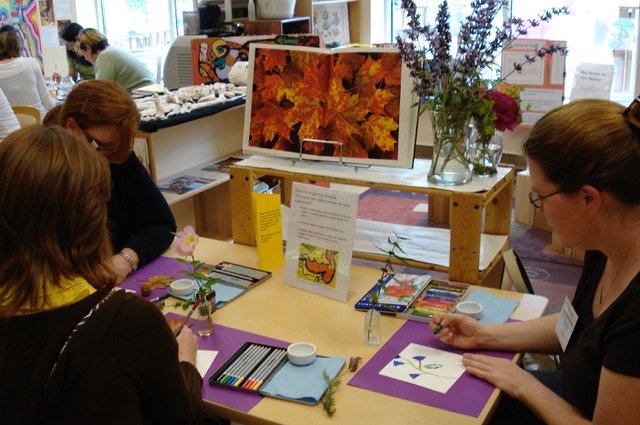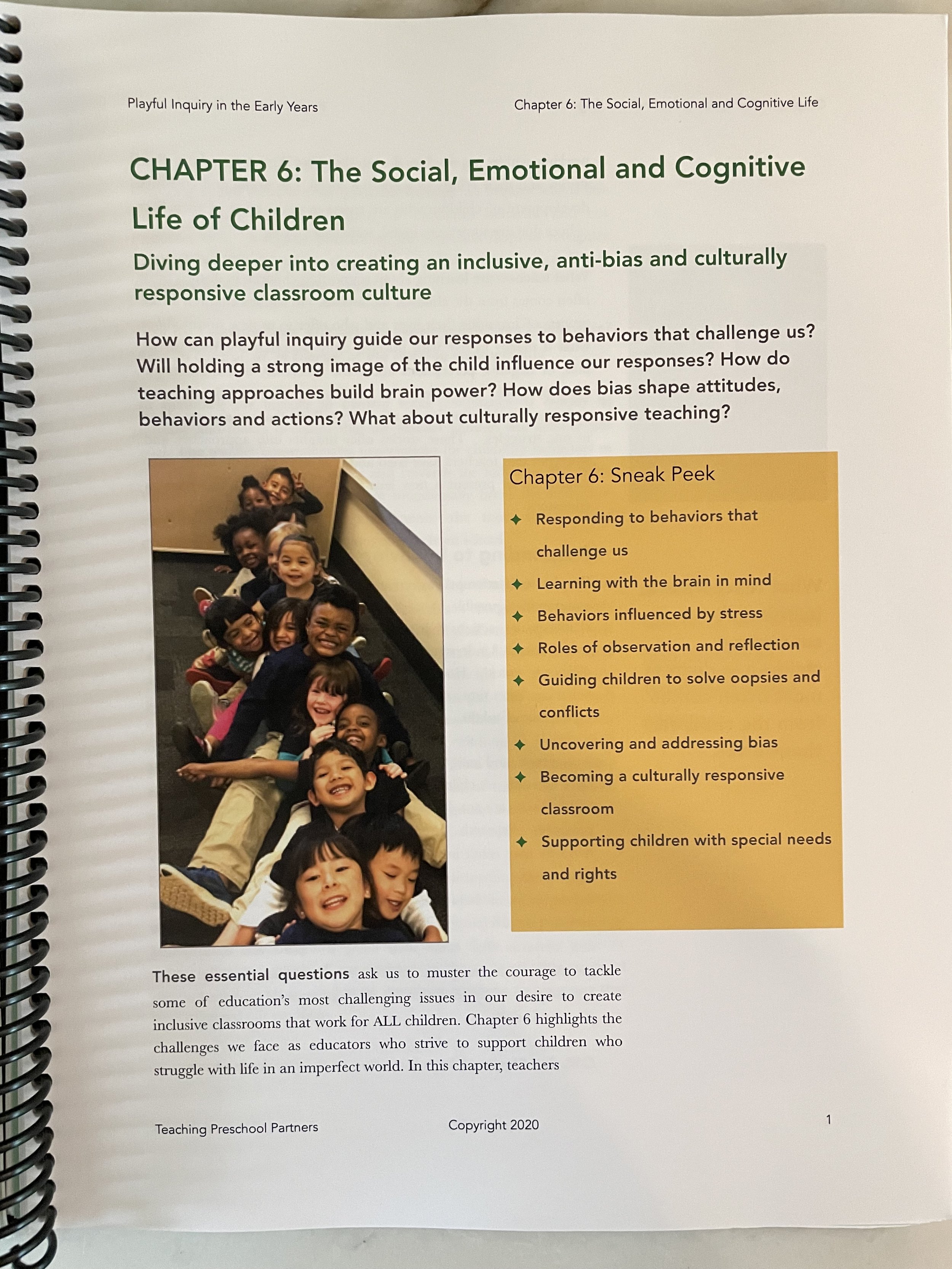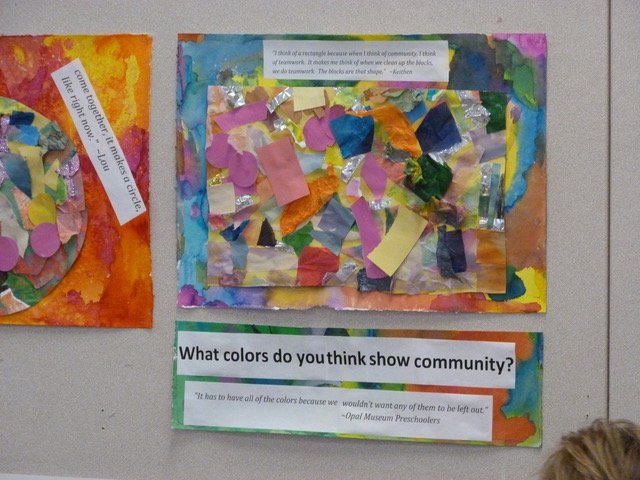Children at Shaver Elementary School, Teaching Preschool Partners
I just finished reading a gem of a curriculum guide for those of us inspired by the work of the preschools in Reggio Emilia, Italy. Playful Inquiry in the Early Years: A field guide for Inclusive, Inquisitive, collaborative school communities that learn together was written by Judy Graves in collaboration with educators dedicated to bringing the inspiration from the preschools of Reggio Emilia to under-resourced public elementary schools. They have done a stellar job! Teaching Preschool Partners (TPP) is a non-profit organization that partners with public school districts to offer playful inquiry approaches to early learning teachers and support staff. Teaching Preschool Partners is an organization that works every day to bring Playful Inquiry to schools where it has been missing. Teaching Preschool Partners collaborates with Oregon school districts to develop demonstration preschool and kindergarten sites and offers K-3 professional development to support inquiry-based learning for teachers, children, and families who live in marginalized communities.
The work that launched Teaching Preschool Partners began at Opal School where teachers worked for 20 years to adapt and evolve the inspiration from Reggio Emilia in their pre-grade 5 public charter school. Judy Graves, who I have known since 1996, explained to me that she grew weary of hearing teachers say, “This works for you in your context here at Opal, but it won’t work for us in our under-resourced community.” When Judy stepped down, following ten years as the school’s founding director, she accepted an invitation from her colleague, Catherine Willmott, to co-found Teaching Preschool Partners.
As background, Opal School was a beacon for North American educators, as well as international visitors, who looked for a living example of how to begin to interpret the work from Reggio Emilia and to build schools in response to the inspiration. Opal was especially helpful for elementary school educators to see how the early education principles and practices from the preschools of Reggio Emilia might evolve and take shape in the elementary grades. I was fortunate to visit and work alongside the Opal educators many times over 20 years. In a blog posted in April, 2021, we wrote:
Judy worked day and night, along with collaborators, to open Opal as a publicly funded charter school with a tuition-based preschool attached, inspired by the work of the schools in Reggio Emilia, Italy, the pedagogy of play, the highest quality literacy practices, a foundation of teaching democracy and social justice, and a commitment to professional development of the local, national, and international community. Because of pandemic financial woes, both the Portland Children’s Museum and Opal School closed their doors on June 30, 2021.
In that blog post we also introduced a wonderful book that highlights a practice developed at Opal School, by by Opal School teachers with the leadership of Susan MacKay, Story Workshop: New Possibilities for Young Writers.
Visiting educators at Opal School conference
Playful Inquiry in the Early Years: A field guide for Inclusive, Inquisitive, collaborative school communities that learn together is a treasure trove of in-depth descriptions and stories of essential practices that have found resounding success in these communities. I have never read a book that so thoroughly and in detail describes practices that embrace playful inquiry as the foundation of curriculum work in all the disciplines as well as the social emotional growth of children. As we read, we can understand and imagine putting these ideas into practice in our own work. At the same time, it is not at all prescriptive. It is a generous, helpful guide book for the possible.
The contents include:
Playful Inquiry: Respecting the inquisitive and imaginative minds of the young
Community Building
Environments and Materials
Curriculum Workshops: Introducing materials as thinking and imagining tools
Curriculum Workshops: Introducing literacy awareness and mathematical thinking
Social, Emotional, and Cognitive Life of Children
Documenting Playful Inquiry
The educators at Teaching Preschool Partners write:
Inquiry practices differ significantly from traditional instructional methodologies that assume knowledge can be transmitted from teacher to child. In place of prescriptive, scripted curriculum, inquiry approaches invite children… to use their inquisitive minds to play with intriguing ideas, questions, proposals, and challenges. Rather than reproducing knowledge, children are empowered to construct and produce knowledge. The role of an adult shifts from being a transmitter of knowledge to becoming an organizer of opportunity.
When Portand Children’s Museum, the parent company of Opal School, closed its doors in 2021, an Opal Archive covering 20 years of teacher research was given to TPP to organize. It is now available to the public at no cost here, opalschool.org. You can inquire to purchase the Field Guide to Playful Inquiry here. (the Field Guide is just becoming available to the general public so email them at the addresses you find at this link and someone will answer you.) These are valuable resources which you will reference often.
I will keep this Field Guide close by. Rather than a one-time read, it is an invaluable resource for teachers in any setting. We come away knowing that this kind of teaching and learning, founded on a strong image of the child and the child’s right to an engaging, empowering, and joyful education is foundational, possible, and the most important calling we have as educators.
Opal School documentation of ideas about community






